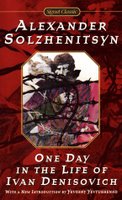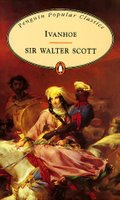A masterful work of science fiction, The City of Ember launches DuPrau's promising career. The story brims with strong images and extended metaphors, undergirded with a lucid style that is easy to read. At its heart, Ember is a salvation story with many clear parallels to Plato's Allegory of the Cave.
The main characters, Lina and Doon, grow up in a city where darkness reigns except for the ever-present streetlights and lights inside houses. Darkness, too, creates a seemingly impenetrable barrier around their known world, so that schoolchildren are taught that Ember is the only city that is and nothing else exists beyond the Unknown Regions.
At twelve years of age, Lina, Doon, and her classmates randomly select their occupation. Each is assured that their job is a small but vital part in ensuring that the social machinery of Ember keeps working. "Ember will prosper if all citizens will do their best," says the mayor. Yet, Doon along with a growing number of disgruntled denizens are aware that the city faces dreadful, insurmountable problems. Food shortages. Blackouts. Some (mostly) new supplies and equipment can be found, but only at great price. Pleased at having received her favorite job, Lina is baffled by her former friend's pesimism, that is, until the electricity blackouts begin occuring more frequently and the rumors of major supply shortages prove to be too true to ignore.
It seems that the mysterious Builders of Ember, who stocked the city full of food and supplies in the first place, either miscalculated or something has gone horribly wrong. When the Builders created the city, they expected that people would live there for only 200 years. After the alotted time, a box containing instructions was to open, informing the mayor of the next steps to take. Tragically, this message was lost. Now, in the year 251, the hydro-electric generator seems poised to fail, undoubtedly plunging Ember into utter blackness.
At this moment of fear and insecurity, Doon and Lina enter the workforce. Doon longs to make a mark on his world, perhaps even being the one to save the city. Just when he discovers the situation is near hopeless, his friendship with Lina is rekindled. Along with her unquenchable curiousity, she brings to the partnership a vision of a city of light that she feels in her heart is out there somewhere. As the situation becomes precarious, Lina's senile grandmother (kin to the major who lost the message) unwitttingly discovers the box with the Builder's instructions. Lina finds the message but not until after her one-year-old sister had had her chance to "inspect" it with her teeth and toddler hands.
Together, the duo work to unscramble the instructions. Just as they discover the pathway out of Ember to freedom, they also uncover the mayor's criminal plot to embezzle food and supplies. Foolishly, they inform the mayor's guards and end up as fugitives, unable to make their life-saving announcement to the public. On the run, Lina, her sister, and Doon take the only "door" out of Ember: the river the flows under the city. Stunned, the three emerge into the outside world, realizing that Ember is underground. They see for the first time moon, stars, grass, trees...sun, birds, animals. Compared with the world they had known, this new "world" is seemingly boundless. A discarded journal that they find reveals that inhabitants of Earth's cities founded Ember as a safety precaution in case of a massive disaster on the surface.
Equipped with the truth regarding the genesis of their city and the only route to salvation, they long to get the message to the others. Finally, they find another path that leads underground to a clifftop overlooking the massive cavern housing Ember and all its inhabitants. Unable to climb back down, they hurl a note to the people below, hoping someone will believe them and the town will make an exodus to safety.
Several allusions, extended metaphors, and themes make this story more intriguing than just another sci-fi childrens' story. It is Plato's Allegory of the Cave retold. Just like the discovery that Plato's enlightened man makes, the main characters find that their world was just a shadow of the near limitless world above the surface of the earth. They too face opposition by men and women who refuse to believe in the truth when they seek desperately to save their city from impending darkness. I won't elaborate much on the clear relationship between darkness and ignorance, light and truth since it is so well elucidated elsewhere.
DuPrau also uses two extended metaphors which, while common, find new life in her story: the seed and the caterpillar. When hope seems lost, Lina's mentor gives her a seed, reminding her that though it looks dead, life will emerge from beneath the soil. Across the city, Doon witnesses a caterpillar metamorphosize into a moth, giving him encouragement that an exit to freedom is imminent.
Desire is a theme that runs throughout the story. Positive desires propel both Doon and Lina to greatness. Doon longs more than anything to save his city, hoping to make his father proud. Driven by dreams of a city of light, Lina holds onto hope that there is something more to her world than what she sees. On the other hand, Lina experiences the force of lust. In the words of her mentor,
"There is so much darkness in Ember, Lina. It's not just outside, it's inside us too. Everyone has some darkness inside. It's like a hungry creature. It wants and wants and wants with a terrible power. And the more you give it, the bigger and hungrier it gets."These words remind her of the hunger she had felt for a set of colored pencils, a hunger that had caused her to neglect watching her sister, who almost became lost. This same hunger led the mayor to embezzle food and supplies for himself. Doon, too, was not exempt, letting longing find expression in anger several times in the book.
In conclusion, Ember has depths to explore below the surface that make this a fascinating beginning to DuPrau's career in science fiction.






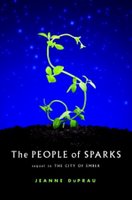






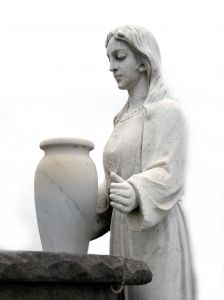

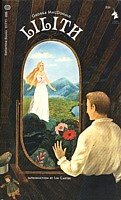











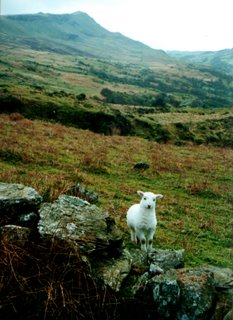













 The Hobbit - J. R. R. Tolkien
The Hobbit - J. R. R. Tolkien






 Harry Potter and the Deathly Hallows - J. K. Rowling
Harry Potter and the Deathly Hallows - J. K. Rowling

